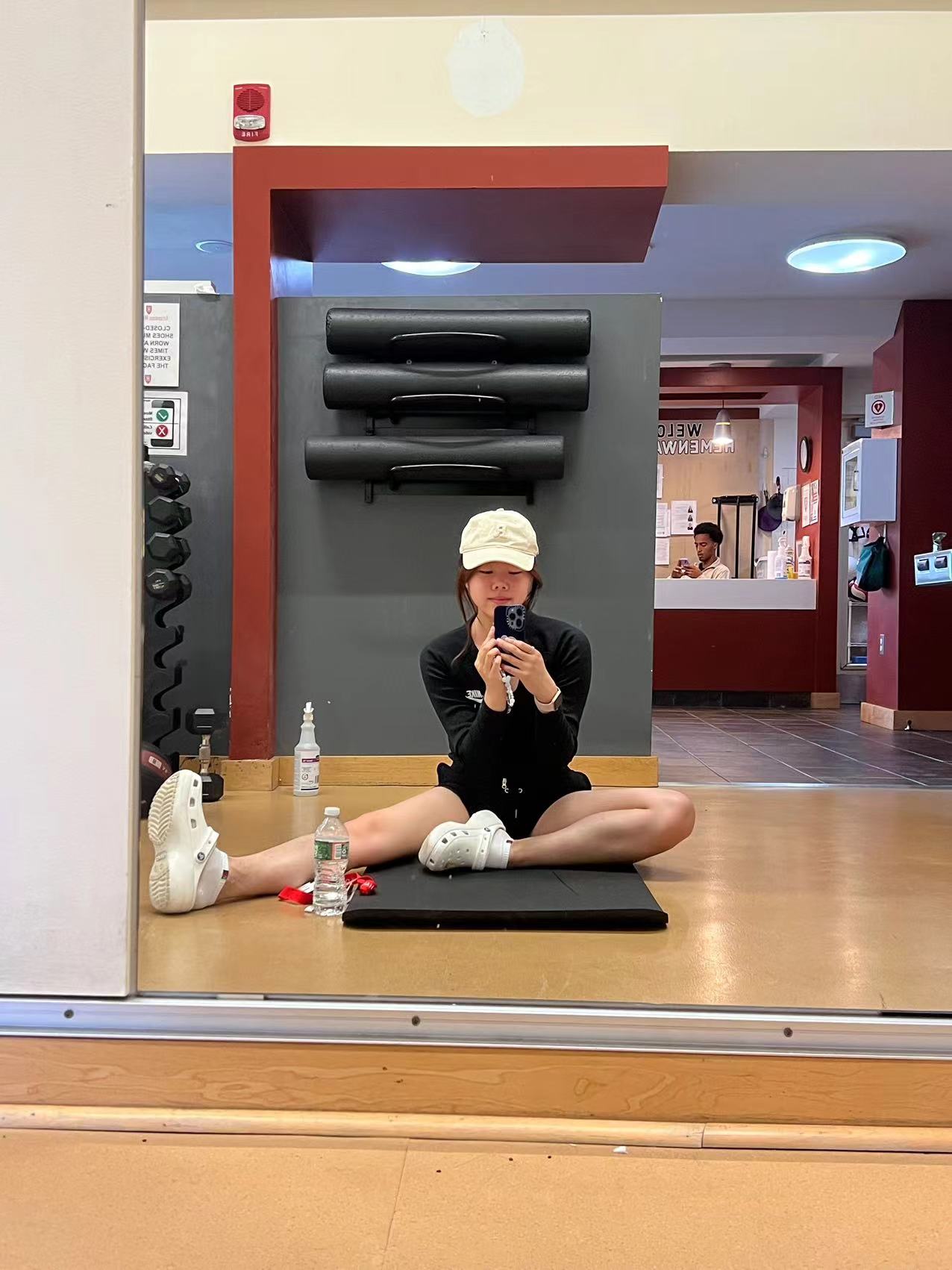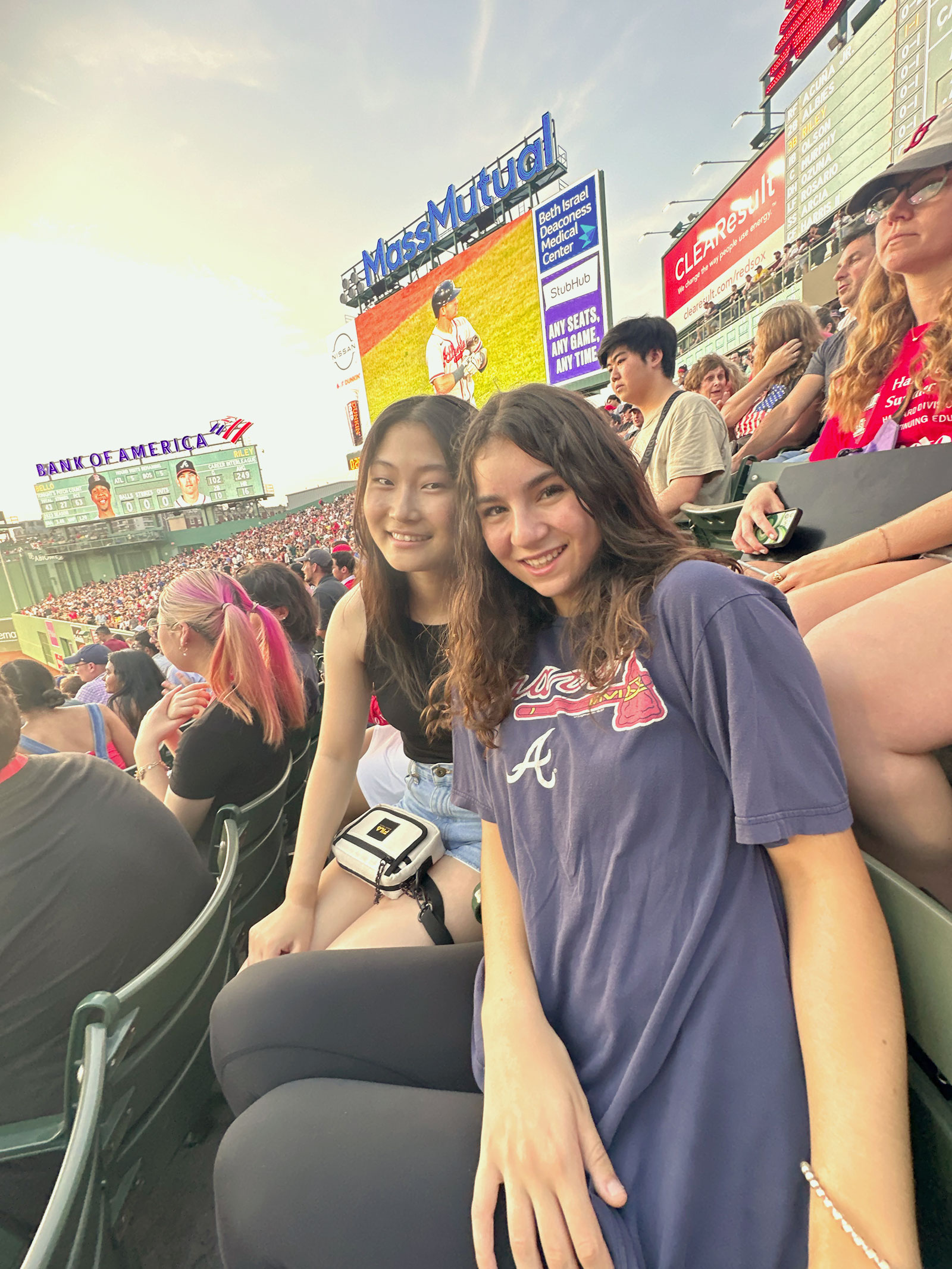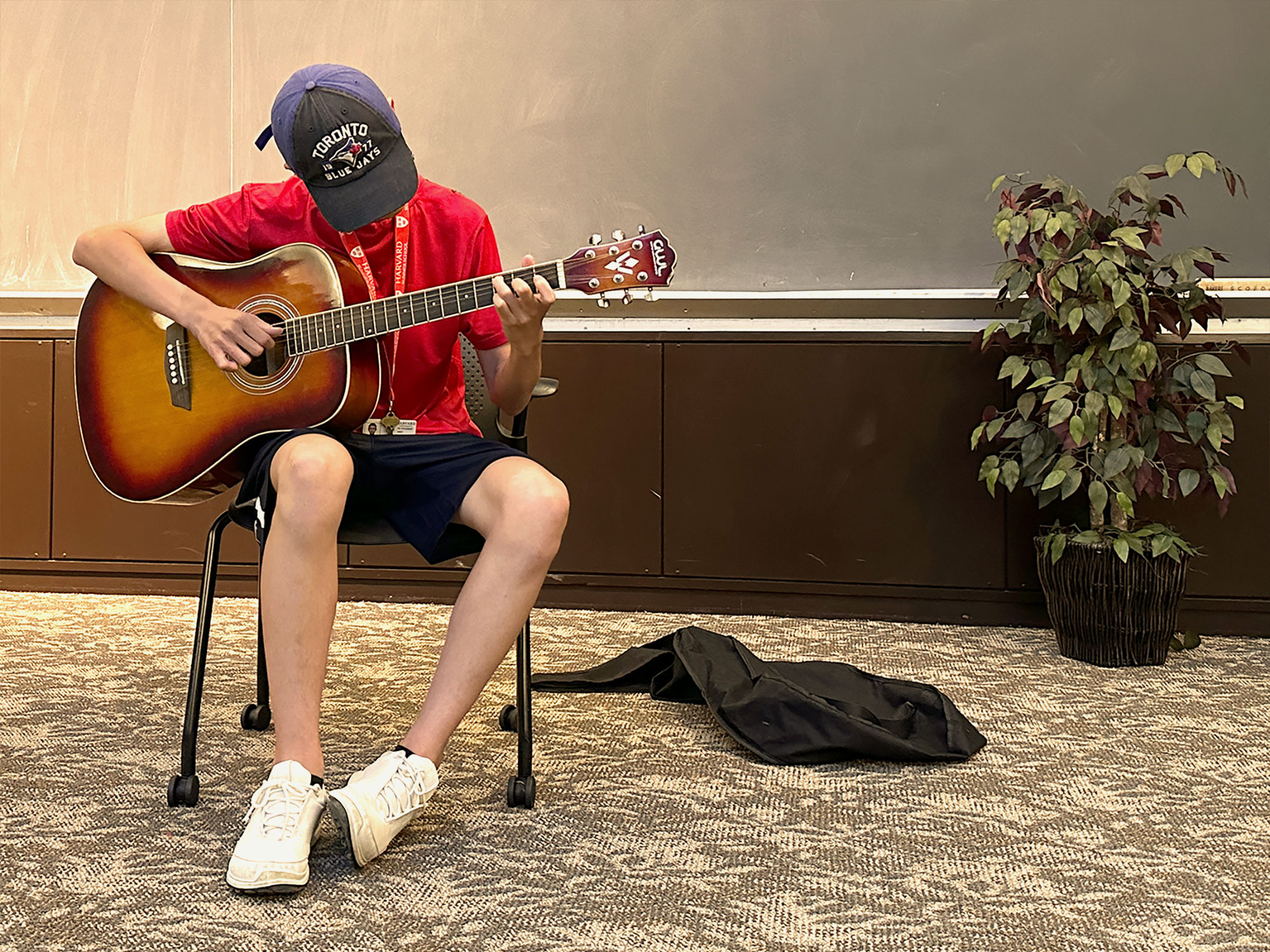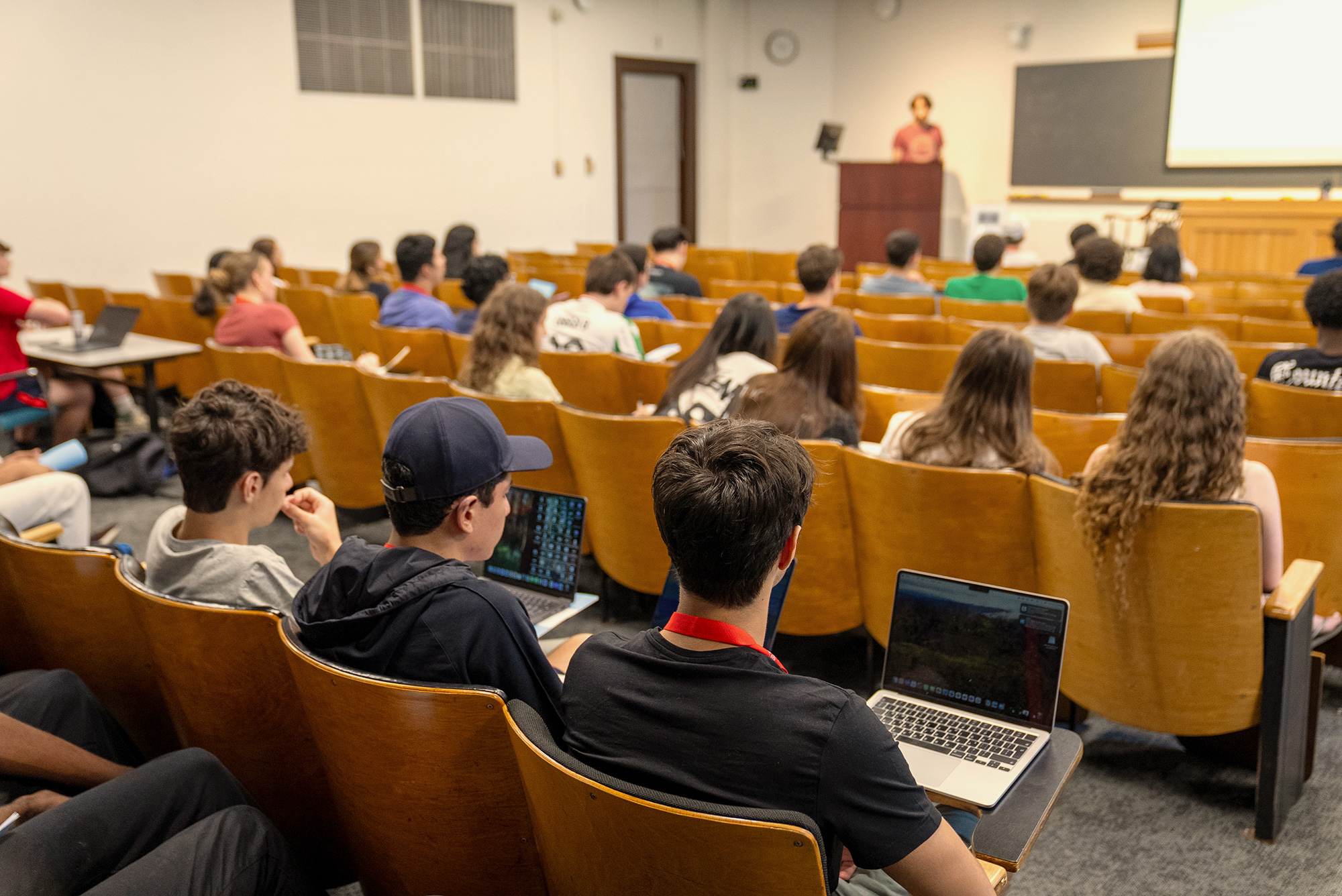On this page
The Secondary School Program began nearly six decades ago in 1966 when Harvard Summer School first began formally admitting high school students to courses bearing academic credit. And in 2015, The Pre-College Program launched with its first cohort and now offers more than 100 courses.
Throughout the decades, thousands of students have passed through the iconic Harvard Yard gates each summer — and logged on from all over the world. While time and technology have progressed, HSS’ mission to academically challenge its students, gain college experience, and offer personal enrichment opportunities stands strong.
Learn more about how Harvard Summer programs helped these three students grow.
Meet Our Students

Alexis Bussell
- Pre-College Program student, ‘21 and ‘22
- Pre-College Program proctor, ‘24
- Current college sophomore at Michigan State University
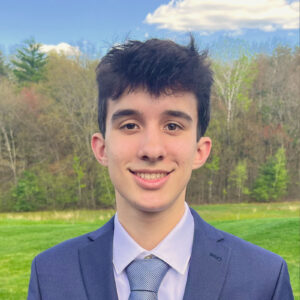
Daniel Palmer
- 4-week Secondary School Program student, ‘24; 2-week Pre-College Program student, ‘22
- Current high school senior from Groton, Mass.
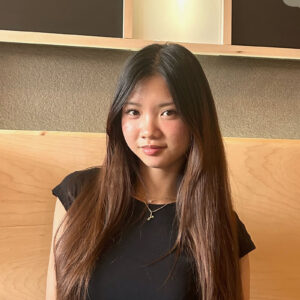
Amy Pham
- 7-week Summer School Program online student, ‘24
- Current high school senior from Toronto, Canada
Expanding Comfort Zones
Harvard Summer programs offer unique experiences to high school students, including taking college-level courses, commuting to campus, living in the college dorms, and engaging in new ways of learning and interacting with faculty and peers.
Online courses are available to any college or adult student with at least a high school diploma who chooses to register, regardless of age. As the only Secondary School Program student in her online psychology class, Amy Pham initially felt intimidated.
“I was really shocked on my first day. Among the 26 people in my psychology class, there was a Harvard admissions officer, a Harvard researcher, a military veteran, and a financial analyzer, to name a few,” she says. “I felt singled out because I was just a high school student without a high school diploma yet, let alone a Ph.D. like many of my classmates. At first, it was very frightening to be the youngest, but by pushing myself to talk to everyone and with their constant support, it was a very engaging class. I grew a really strong confidence in my ideas and opinions.”
In-person interactions also require taking the initiative, says Daniel Palmer.
“My biggest piece of advice is to put yourself out there. Going to a summer program away from home for several weeks can be obviously frightening. It’s a new environment. You’re taking a class while becoming a person in a new campus,” he says.
Palmer encourages students to not only connect with each other, but also with their instructors, and to reach out when they need help.
“They chose to spend their summer with you, so go interact with them and ask them questions,” he adds.
Developing Key Skills
Harvard Summer programs offer workshops on study skills for succeeding in college, such as keeping up with readings, note-taking, and participating in class.
Secondary School Program Director Bill Holinger recounts a student who attended the “Speaking Up in Class” workshop to bolster her confidence.
“She decided she would make at least one comment in every class meeting from then on, and keep a record of her class participation efforts,” says Holinger. “By the end of the summer, she was speaking up in class with no difficulty, and her connection to the course material was richer and deeper as a result.”
Similarly, Pham struggled with being amongst her impressive psychology course cohort.
“I was super shy at first, in front of all these super smart people,” she says. “[However,] I also exponentially grew my public speaking skills because the class was so engaging, constantly valuing my opinions and making me want to speak.”
Pham is now a founder of two clubs at her school, leading meetings with confidence.
Engaging in Enriching Activities
In addition to academics, students are encouraged to get involved with extracurriculars, including:
In-person and virtual
- Talks and panel discussions
- Tours of Harvard
- Tutoring assistance
In-Person
- Day trips
- Sports events like Red Sox games
- Access to Harvard facilities such as gyms, museums, and libraries
Harvard Summer students visit Harvard athletic facilities, go to Fenway Park, participate in the program’s talent show, and view Museum collections.
Receiving Support
Proctors are responsible for assisting students in the dorms and are the first resource they can go to with questions or potential problems. They are trained to deal with a variety of scenarios and situations students may encounter, from academic to social challenges.
They meet with students individually at least twice throughout the summer to get to know them, answer questions, and be a friendly face — especially at the beginning of the program.
Proctors can also redirect students to resources, moderate roommate disagreements, and provide assistance for students experiencing homesickness. By helping students adapt to their new environment, proctors make it possible for students to learn and grow.
“Proctors are fully equipped with knowledge of how to support students in pretty much every way that they might need while they’re there,” says Alexis Bussnell, who served as a Pre-College Program proctor during summer 2024.
Joining a Global Community
Harvard Summer programs attract students worldwide, both online and in person. Taking advantage of that unique opportunity enriches and expands the Summer experience.
“Every single student who told me that they were really nervous that they weren’t going to make any friends, I would then see them a few days later, doing homework with their friends in the library or in the lobby, or eating with people in Annenberg,” says Bussnell. “And almost every one of my students at the very end, their favorite part of the entire program was the people that they met, especially from all over the world. It was really nice to see.”
Giving Back
Alexis is one of the many former Summer program students who chose to return to Harvard as a Pre-College Program proctor. According to Dr. Jacqueline T. Newcomb, the program has more than 20 former students serving in the role each summer.
“Many say being a proctor is just as meaningful as being a student,” says the Executive Director of High School Programs. “I am so proud to have created a program that inspires former students to come back and contribute to its success.”
Developing a Passion
Summer is a time to explore what you love outside of what you may be usually exposed to. With more than 100 courses to choose from, Harvard Summer is the place to dive into a new — or budding — passion.
When Palmer attended the Pre-College Program, he met others who were similarly driven by academics and motivated by the desire to learn.
“Through the experience I was able to work with a Harvard Summer School instructor as a research assistant for him and I’ve been helping him with research,” he says. “It really pushed me to see what’s out there even as a teenager, not even someone in college yet, there’s so many opportunities out there for us.”
